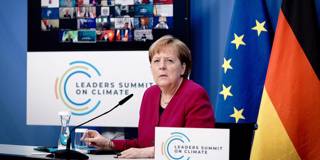Crises such as climate change and COVID-19 require multilateral responses, and a critical mass of countries can alter the course of events, for better or worse. Despite current geopolitical tensions, leaders must not lose sight of major global threats – and of the need to find common ground.
MADRID – In early 1981, a few days before Jimmy Carter handed over the US presidency to Ronald Reagan, a short story on page 13 of The New YorkTimes mentioned a report from the Council on Environmental Quality. This body, tasked with advising the US president, sounded the alarm about the link between the increasing atmospheric concentration of carbon dioxide and global warming. “Efforts should be begun immediately to develop and examine alternative global energy futures,” the report stated, also emphasizing that “international collaboration in assessing the CO2 problem is particularly important.”

MADRID – In early 1981, a few days before Jimmy Carter handed over the US presidency to Ronald Reagan, a short story on page 13 of The New YorkTimes mentioned a report from the Council on Environmental Quality. This body, tasked with advising the US president, sounded the alarm about the link between the increasing atmospheric concentration of carbon dioxide and global warming. “Efforts should be begun immediately to develop and examine alternative global energy futures,” the report stated, also emphasizing that “international collaboration in assessing the CO2 problem is particularly important.”